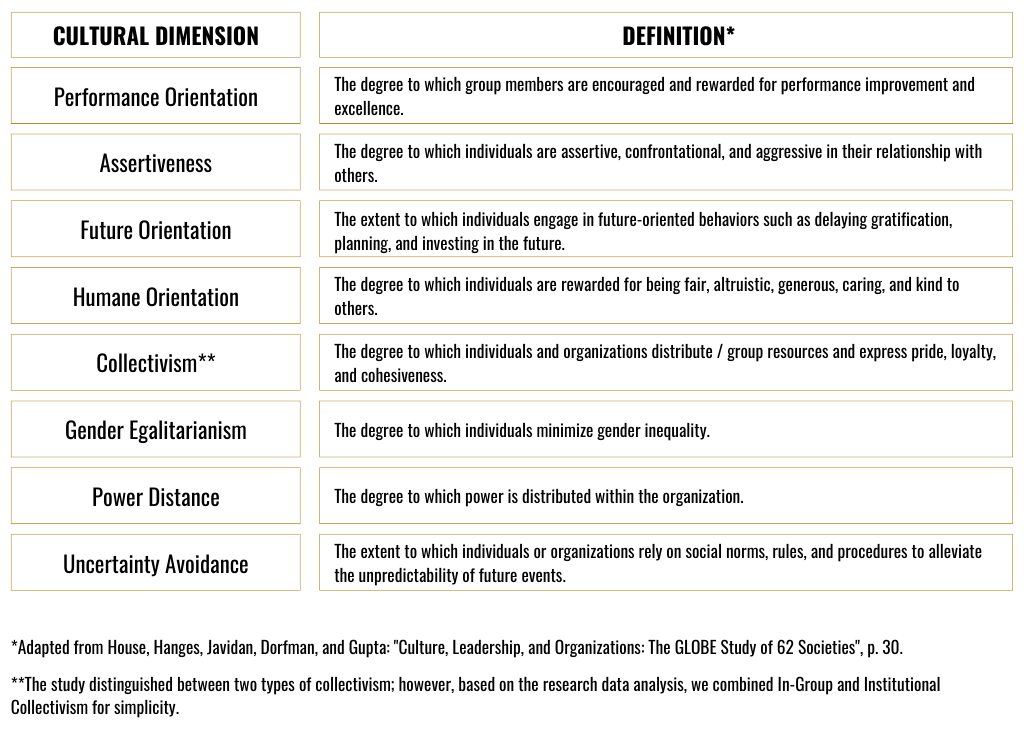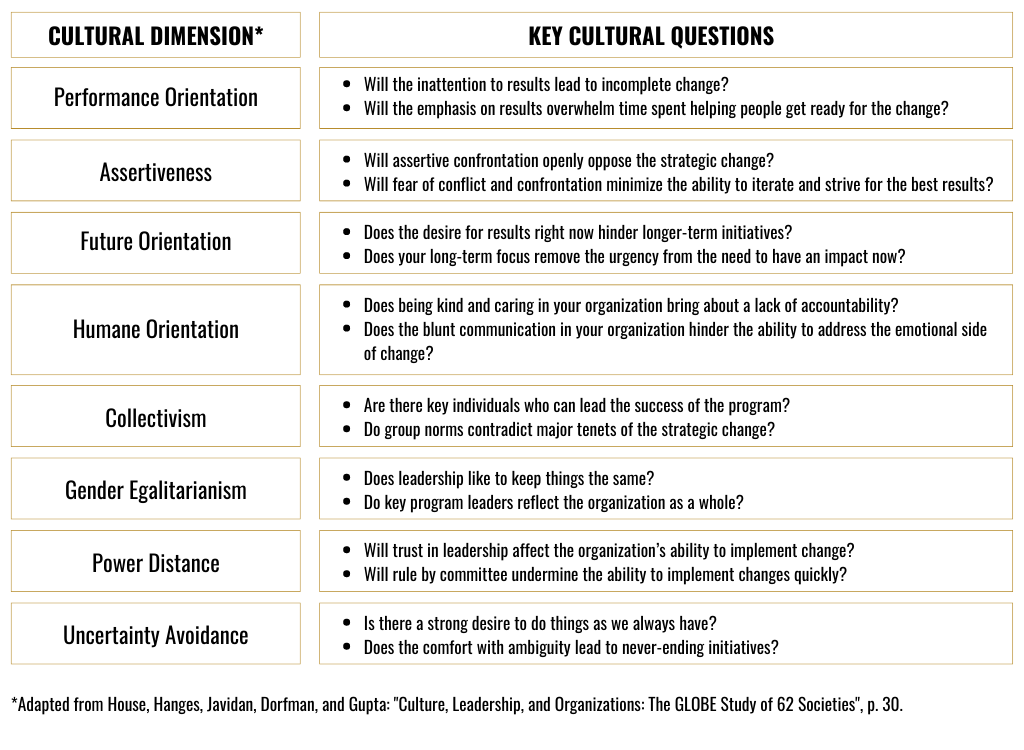Why Culture Eats Change Management For Breakfast

- CLICK HERE TO READ THE ARTICLE FEATURED IN CHANGE MANAGEMENT REVIEW
- CLICK HERE TO READ THE ARTICLE FEATURED IN THE OGM
The oft-quoted phrase “culture eats strategy for breakfast” has been attributed to Peter Drucker (see “Does culture really eat strategy for breakfast?”). Even if Drucker didn’t say it, the idea that culture drastically affects the success of strategy has been around for a long time. In 1985, Edgar Schein wrote in his book “Organizational Culture & Leadership” that “culture determines and limits strategy.” The fundamental idea is that organizational culture can easily stop a good change management strategy from being implemented.
A culture that’s averse to conflict and accountability will certainly limit the ability to achieve strategic change. Consider Patrick Lencioni’s “5 Dysfunctions of a Team.” Can you imagine an organization sustaining a strategic change if its culture exhibits:
- Inattention to results
- Fear of conflict
- Avoidance of accountability
- A lack of commitment
- Or a lack of trust?
Lencioni only had five dysfunctions, but there are more than five areas of cultural dysfunction (see table below).
Organizations & Culture
Even though aspects of any culture may be disheartening, organizational culture isn’t inherently good or bad. For instance, the way power is displayed in a culture is neither good nor bad. We all know of hierarchical power-based organizations that thrive, as well as flat and collaborative organizations that lead their industries. An organization’s culture can help it thrive or it can hinder its success. Whether it helps or hurts depends on the culture AND the strategic change being implemented AND the individuals involved. So, how do you know if you have a cultural impediment to future success? How do you know if you need to implement cultural changes to successfully make a strategic change?
READ MORE: Organizational Change Management In The Age Of Disruption
Let’s start by examining the dimensions of an organization’s culture more deeply. An organization’s culture can be described as the people’s behaviors and the mindset that drives them. Some parts of culture are implicit and are difficult to see, even by the organization’s members. So House, Hanges, Javidan, Dorfman, and Gupta defined nine dimensions of culture in an organization in their landmark book, titled “Culture, Leadership, and Organizations: The GLOBE Study of 62 Societies”. (See table below). I reduced the list to eight, combining In-Group and Institutional Collectivism for simplicity.

Each of these organizational culture dimensions can be scored indicating whether the organization has a high or low level of that dimension (i.e., high or low-performance orientation). A high-performance orientation can truly make an organization excel (e.g., UPS) and it may also lead to more difficult culture-causing problems (e.g., Enron). Likewise, high assertiveness can be good for an organization as people challenge the status quo, while low assertiveness can create a great environment for new employees that are conducive to new thinking and ideas. So, cultures that are scored high or low on a given cultural dimension can be incredibly successful and enjoyable places to work.
Understanding Your Culture To Ensure Strategic Success
When it comes to change, there are aspects of all these cultural elements that can derail strategic initiatives. In those instances, understanding your culture and making plans to proactively influence the culture may be required for success.
Below is a table of the eight cultural dimensions with key questions. The questions express cultural elements at opposite ends of the cultural dimensions that may positively or negatively impact strategic initiatives. Ask yourself these key cultural questions to determine if you may need to address your culture directly as a part of your strategic change plans:

One final note: if you do choose to work to influence your culture, remember that culture takes time and is driven from the top. After defining the requisite behaviors with leadership, then a culture program can be created where executives lead the way.
For more on change, culture, leadership, and implementing strategic initiatives, contact Don Barnhart at Opportune. Opportune helps its clients achieve operational excellence through business transformations in the energy industry.
About The Expert
Donald Barnhart is a Director in Opportune LLP’s Process & Technology practice based in Houston. Don has over 25 years of experience in change management consulting in the energy industry with Opportune, 2Develop, and Accenture, with a focus on energy trading and risk management. Don has worked with integrated supermajors, midstream companies, and independent trading firms. All his change projects drive organization performance improvement, implement strategic initiatives, and foster cultural change. Don holds an M.A. in Instructional Systems Design from the University of Maryland, Baltimore County.
Related Insights
Our experts are here
for you.
When you choose Opportune, you gain access to seasoned professionals who not only listen to your needs, but who will work hand in hand with you to achieve established goals. With a sense of urgency and a can-do mindset, we focus on taking the steps necessary to create a higher impact and achieve maximum results for your organization.
LeadershipGeneral Contact Form
Looking for expertise in the energy industry? We’ve got you covered.
Find out why the new landmark legislation should provide a much-needed boost for the development of carbon capture.




